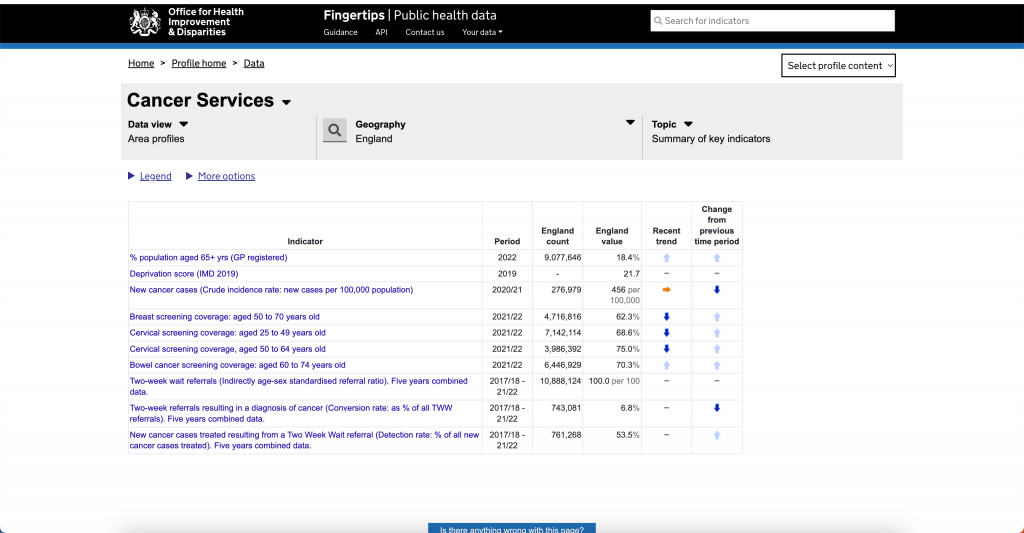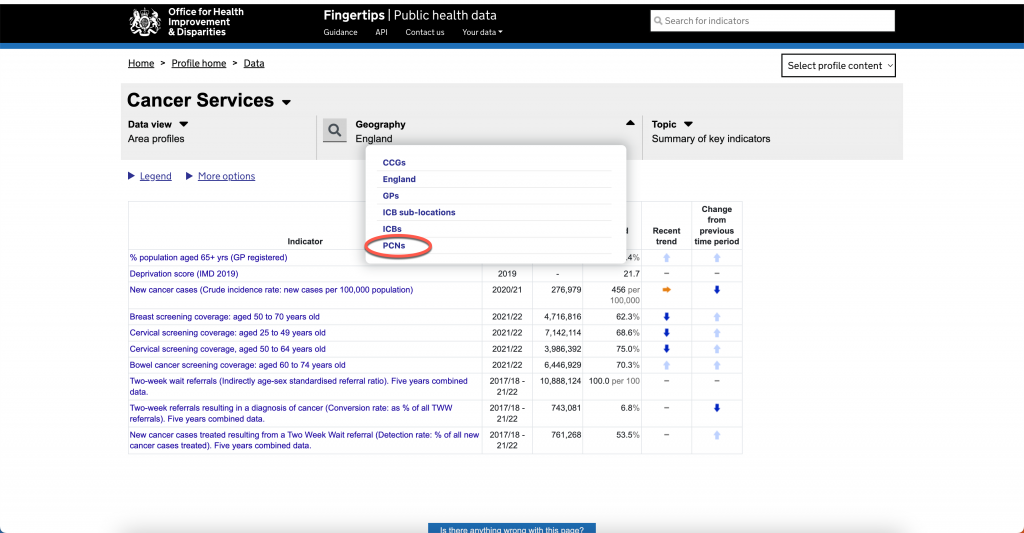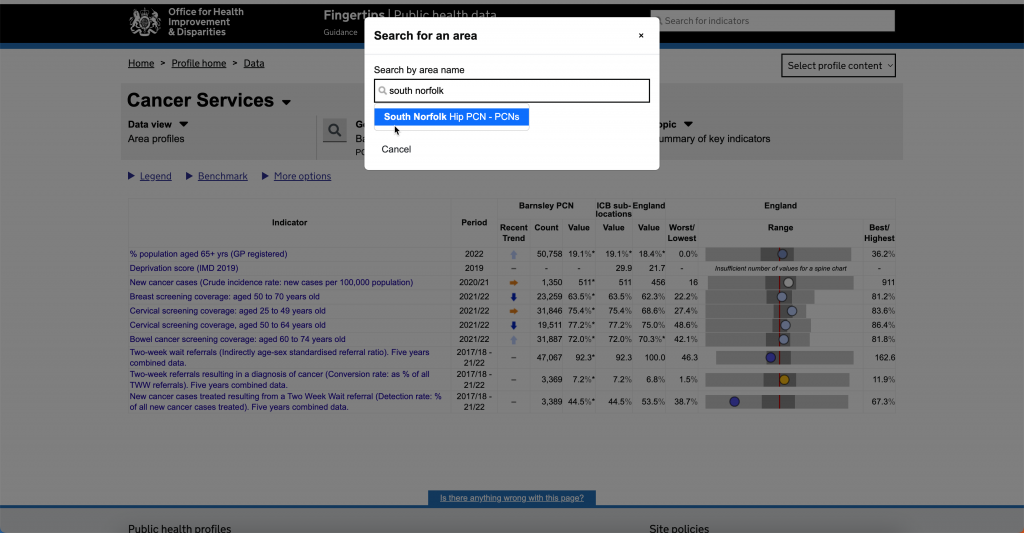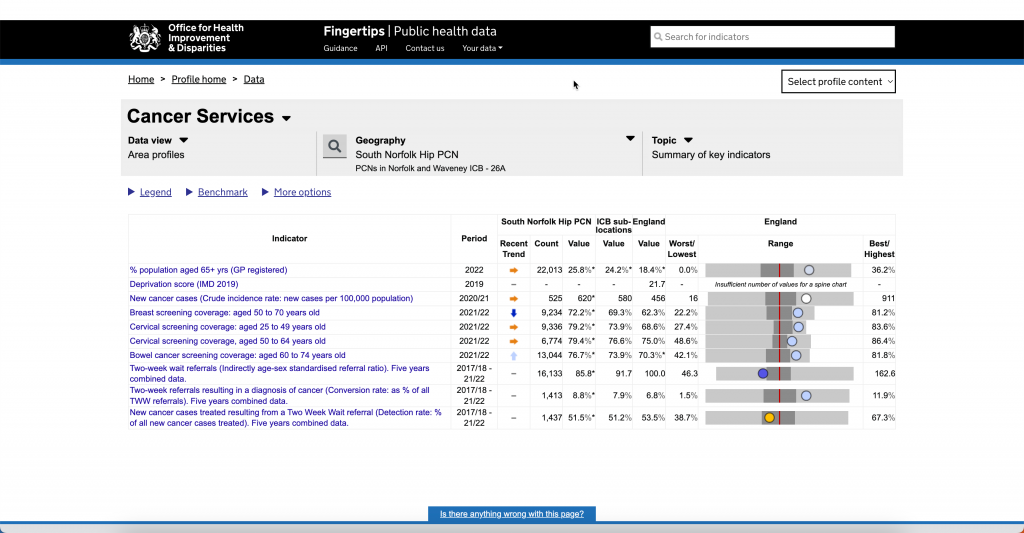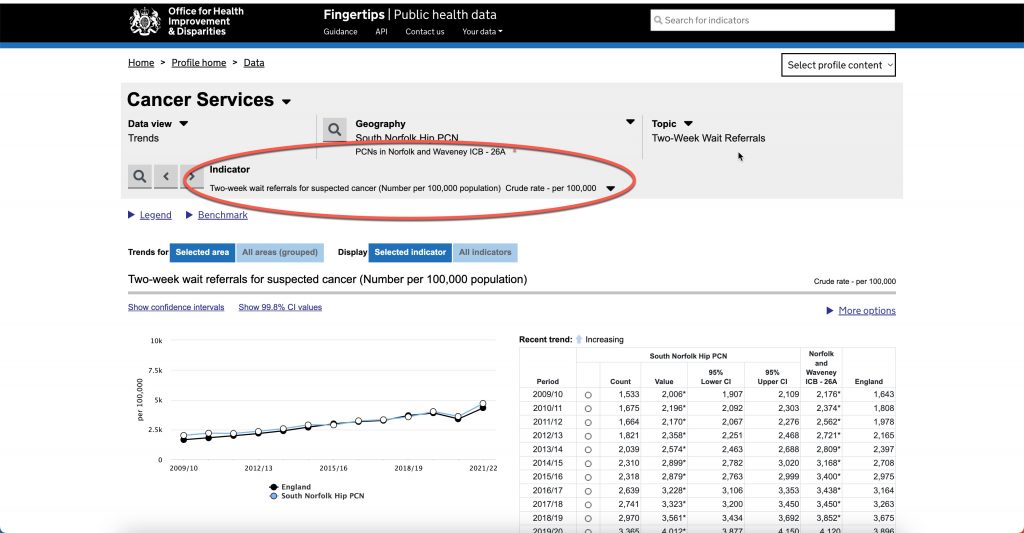Introduction
This page highlights resources both paid for and free, that can be used by surgeries and PCNs to achieve the aims of the Network Contract DES – early cancer diagnosis guidance for 2023/24. We will cover:
Clinical System Searches/Reports (for customers)
EMIS customers can download the searches or request installation on their system. For TPP SystmOne customers, these will be in your Primary Care IT share.
EMIS Searches

TPP SystmOne Reports

Review referral practice for suspected and recurrent cancers, and work with its community of practice to identify and implement specific actions to improve referral practice, particularly among people from disadvantaged areas where early diagnosis rates are lower;
Early cancer diagnosis contract specification
If you’re a Primary Care IT subscriber, you can utilise our searches/reports to look at your recent referrals and undertake an audit of these. If you want to look at broader data and compare your performance to your region you may wish to review the PHE fingertips data. Access this using the link on the left and click on the below link to see a useful guide to using the website.
Work with local system partners – including the NHS England Regional Public Health Commissioning team and Cancer Alliance – to agree the PCN’s contribution to local efforts to improve uptake in cervical and bowel NHS Cancer Screening Programmes and follow-up on non-responders to invitations.
There is useful data in the PHE fingertips resources above to compare your screening rates to a number of other metrics and see them over time.
The searches/reports within Primary Care IT I 025 PCN DES I Cancer | Screening Programmes also give you a number of resources to help with this. There are:
You can also see a variety of free resources within the PCIT Info Hub that help with Cervical Cancer screening. This includes:
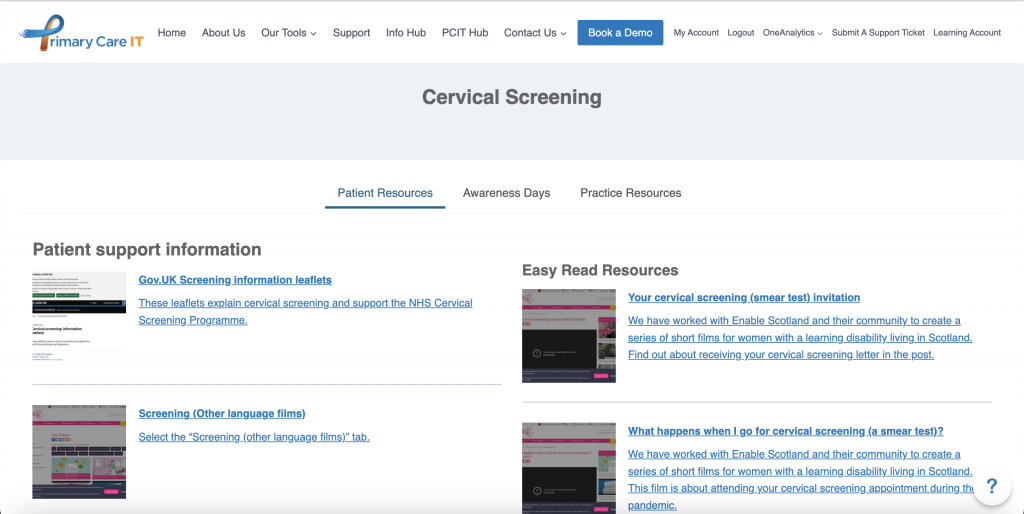
Work with its Core Network Practices to adopt and embed:
i. the requesting of FIT tests where appropriate for patients being referred for suspected colorectal cancer; and
ii. where available and appropriate, the use of teledermatology to support skin cancer referrals
The first of these requirements is covered by IIF this year. Customers have alerts or patient status alerts in their systems to highlight this need to them. Users of our “Referral Tree” are alerted if FIT tests have not been undertaken at the point of launching the referral.
Work will be needed with commissioners to look at implementation of teledermatology to support skin cancer referrals.
Focusing on prostate cancer, and informed by data provided by the local Cancer Alliance, develop and implement a plan to increase the proactive and opportunistic assessment of patients for a potential cancer diagnosis in population cohorts where referral rates have not recovered to their prepandemic baseline;
Review referral practice for suspected and recurrent cancers, and work with its community of practice to identify and implement specific actions to improve referral practice, particularly among people from disadvantaged areas where early diagnosis rates are lower;
For subscribers to our professional package, our bespoke Referral Tree can be utilised to ensure streamlining of cancer referral pathways. Our bespoke templates can help to highlight the eligibility criteria for referral to an expanding and multidisciplinary workworce as follows:
Ensure all urgent referral pathway forms are easy to find and up to date
EMIS

TPP SystmOne

Offering of templates to standardise data entry and see referral criteria
EMIS


TPP SystmOne


Checking of referrals to ensure appropriate data coded
EMIS

TPP SystmOne

Standardised safety netting of referrals
EMIS


TPP SystmOne



